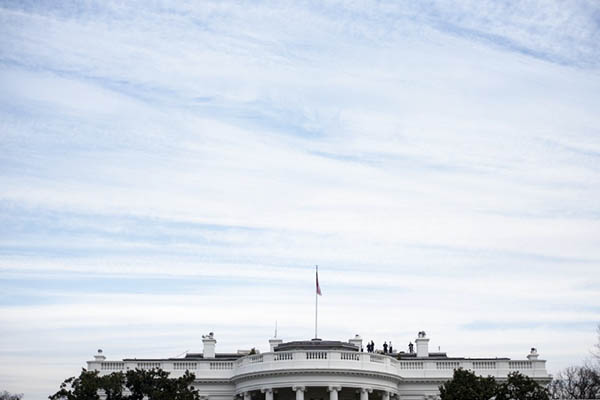
Brendan Smialowski—AFP
Report claims Trump administration wants to cut funding for clean energy programs by 72 percent
The Trump administration will ask Congress to cut funding for clean energy and energy efficiency programs by 72 percent in this year’s budget, according to a report in the Washington Post, underscoring its preference for fossil fuels.
The Post said it had obtained draft documents that outlined the administration’s starting point for negotiations for the 2018 budget, set to be unveiled in February. Congress, which is ultimately tasked with deciding appropriations, could push back—but the documents signal the White House’s policy priorities, the newspaper said.
President Donald Trump has focused heavily on prioritizing the extraction of fossil fuels and their export around the world, especially the coal sector, which has long been in decline. The Post said the proposed cuts were deeper than those the Trump administration sought for the current fiscal year, but was unable to implement because of a budget impasse in Congress, which has passed a stop-gap measure funding the federal government into February.
Spending for the Energy Department’s Office of Energy Efficiency and Renewable Energy is currently set at $2.04 billion. It would drop to $575.5 million under the proposal. “It shows that we’ve made no inroads in terms of convincing the administration of our value, and if anything, our value based on these numbers has dropped,” a department employee told the Post on condition of anonymity.
Last week, the administration approved steep tariffs on imported solar panels in a move decried by the industry, which said it would lead to thousands of job losses and stunt investment.
Trump’s energy department last year proposed providing federal subsidies to nuclear and coal power plants, arguing the move was necessary to make the national grid more resilient to crises. But the U.S. energy watchdog terminated the proposal, finding it neither justified nor reasonable.
